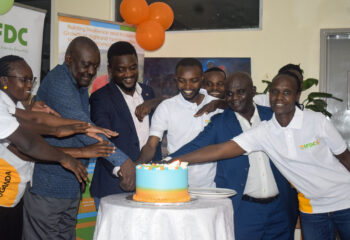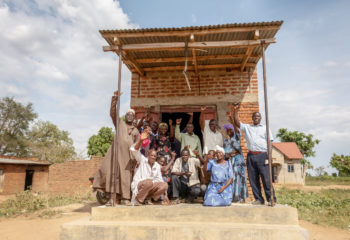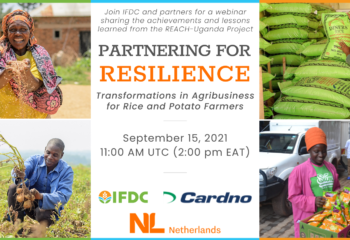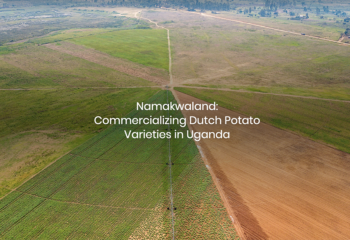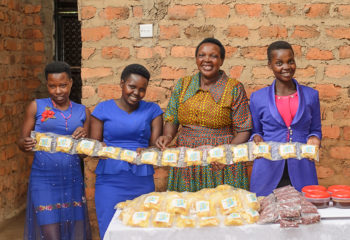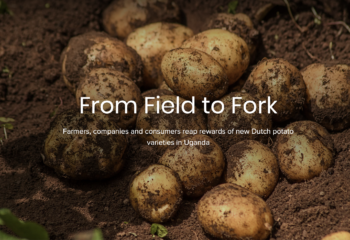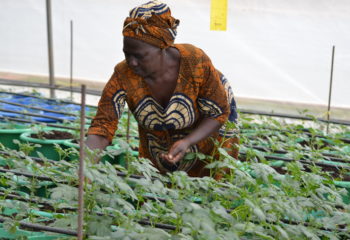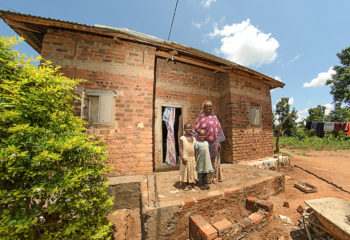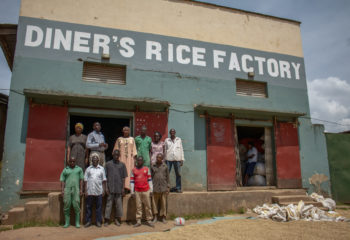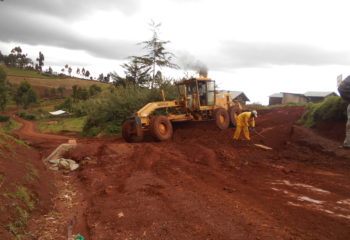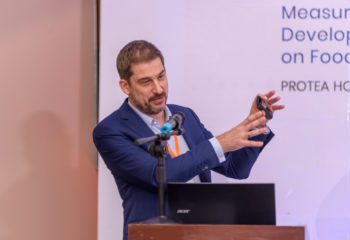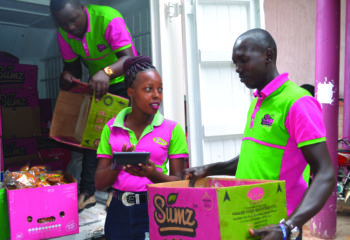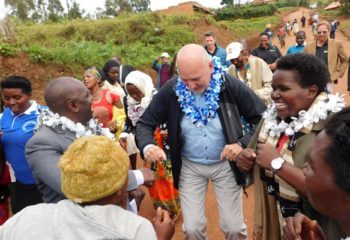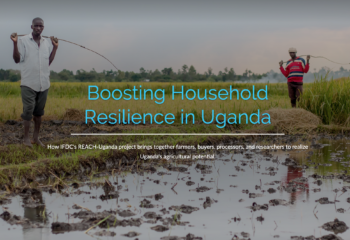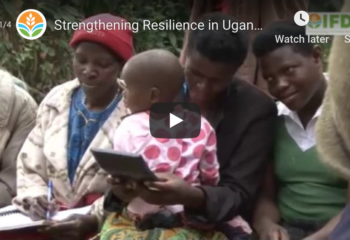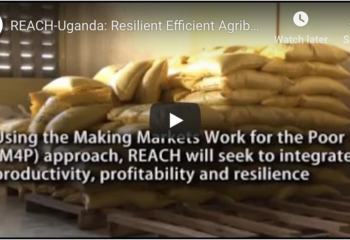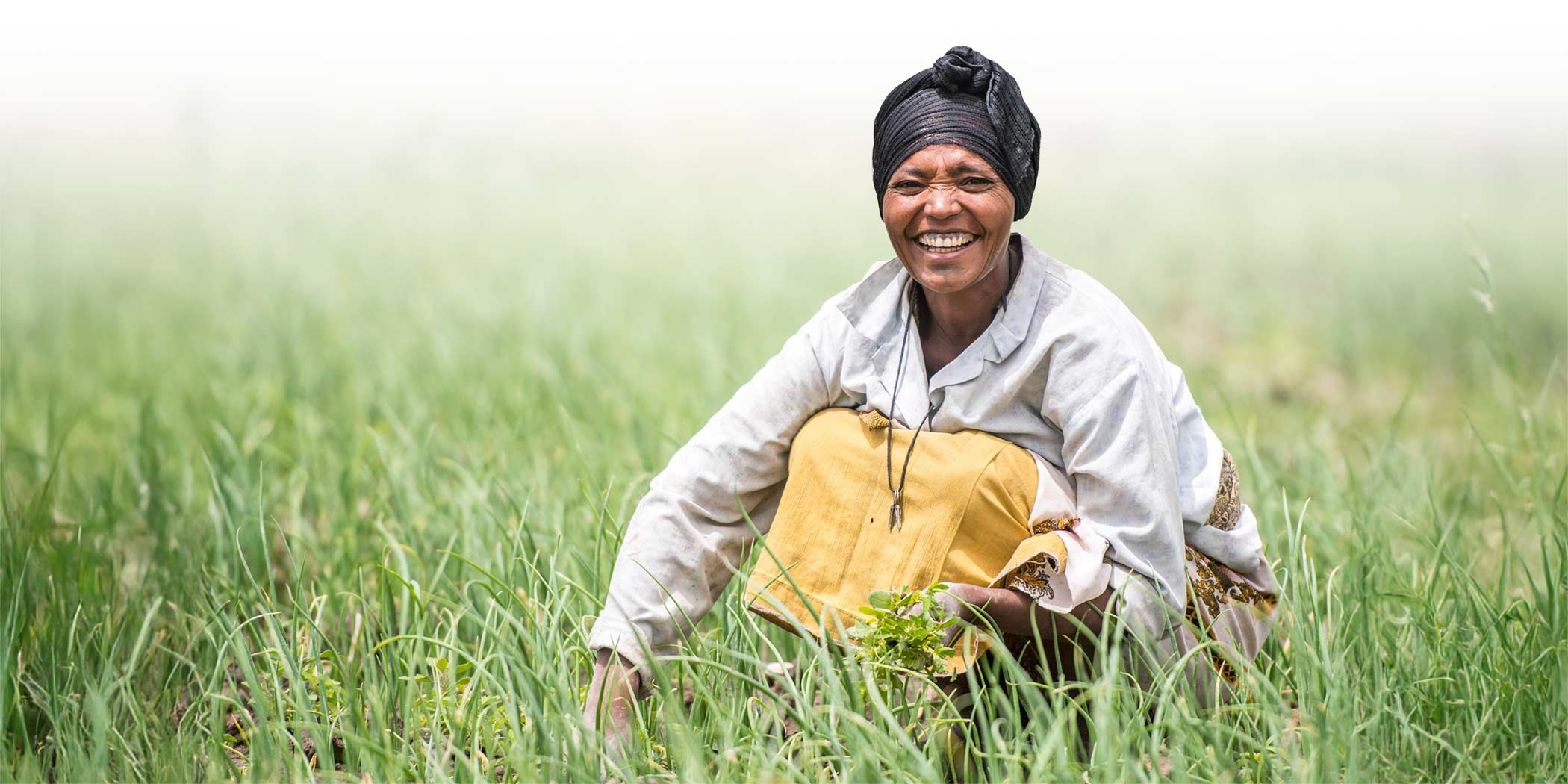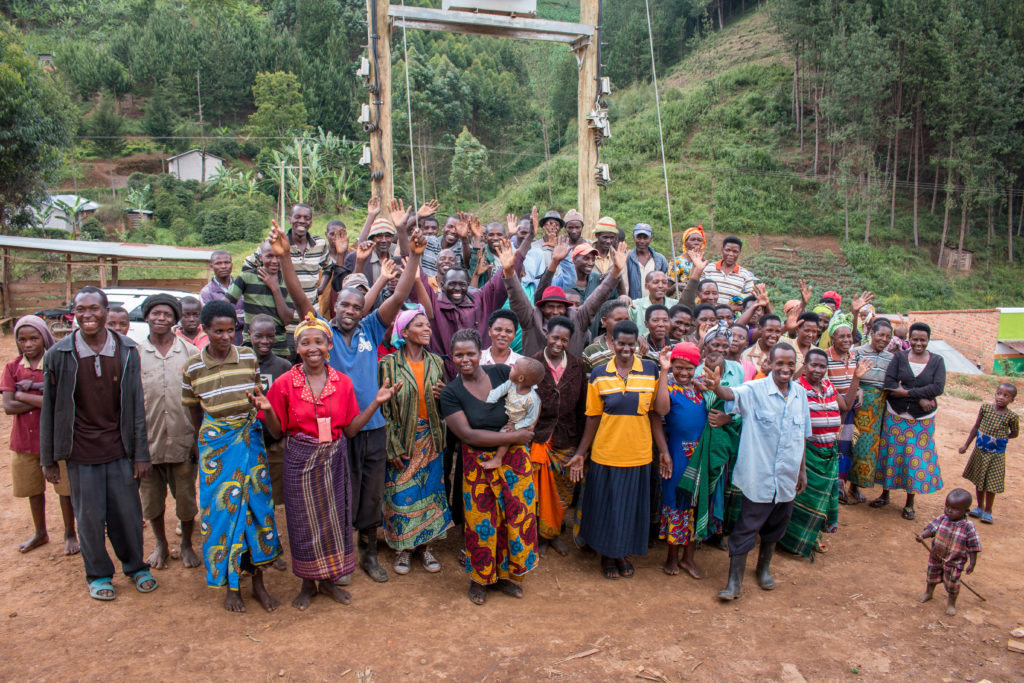
REACH-Uganda (2016-2021) aims to improve farmers’ market engagement, strengthen household resilience, and increase availability of agriculture support services for 40,000 farmers and businesses in the rice and potato value chains.
By employing a market systems approach to development, REACH seeks to bolster local markets so that they will function more effectively, sustainably, and beneficially for poor farmers. Instead of approaching a solution to these issues that might simply provide inputs or services, REACH aims to develop linkages between low-income rice and potato farmers and micro-, small-, and medium-sized enterprises (MSMEs).
REACH has engaged with nearly 40,000 farmers to increase household resilience.
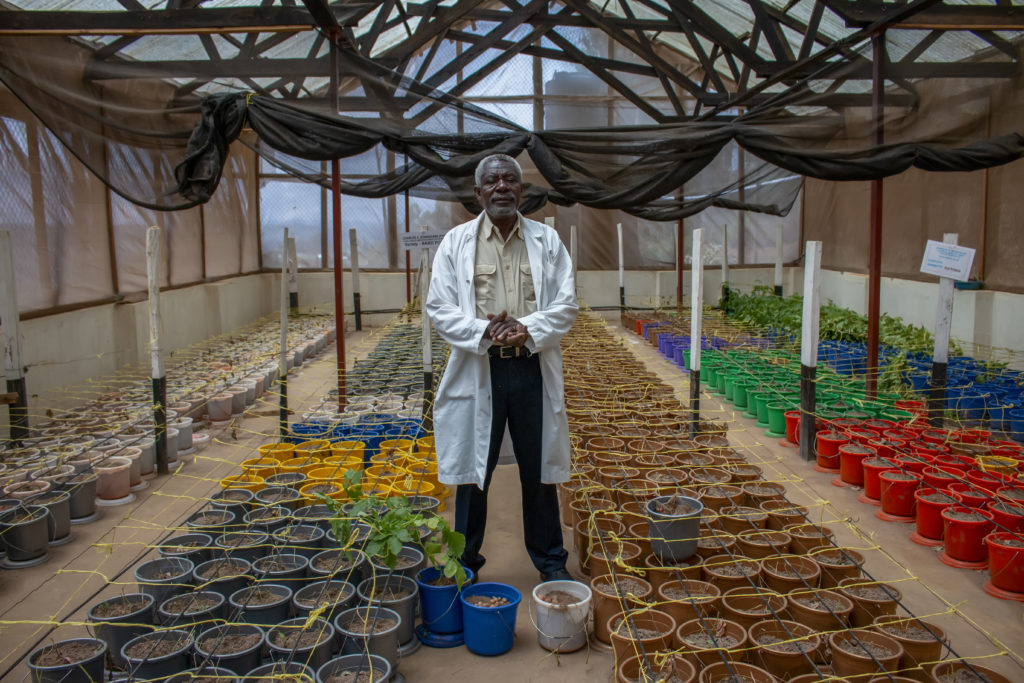
Goals Met
- 30 firms/MSMEs have signed Memoranda of Cooperation with the REACH-Uganda project.
- U.S. $4,852,622 has been leveraged from business partners and district local governments to facilitate business and infrastructure activities.
- 36,398 farmers (62% women and 38% youth) have been trained in farming as a business (FaaB), climate-smart agriculture, and resilience.
- 67 kilometers of rural feeder roads have been fully rehabilitated to facilitate market access for farmers
Across three regions in Uganda, REACH has engaged with nearly 40,000 farmers to increase household resilience. To do this, REACH employs training and interventions in four resilience measures to help producers prepare for potential shocks. The four resilience pillars include climate-smart agricultural practices, diversification of income sources, joint decision-making, and access to finance.
The project is funded by Embassy of the Kingdom of the Netherlands. Partners include Cardno Emerging Markets, Ministry of Agriculture, Animal Industry, and Fisheries (MAAIF) of the Government of Uganda, the National Agricultural Research Organization (NARO), and the Royal Tropical Institute (KIT).

Impacts
2021
- Increased yields at the farmer level from 3.07 to 4.15 mt per acre (35%) in potato and from 0.6 mt to 1.36 mt per acre (126%) in rice.
- Helped raise farmers’ net income from U.S. $711 to $1,279 per acre for potato and from U.S. $338 to $559 per acre for rice.
- Facilitated U.S. $4.5 million in additional income for 11,763 farmers through 14 private sector partnerships.
- Improved household food security from 55% to 62% due to improvements in yield, income, and crop diversification.
- Created 352 full-time jobs.
2020
- 6,627 potato and 17,532 rice farmers earned an additional U.S. $10.2 million from increased productivity
- By 2024, REACH-facilitated agribusiness linkages between farmers and 26 private sector firms, including banks, will assist 59,798 farmers and create 826 full-time jobs. Furthermore, 3,600 farmers are projected to register increased savings of U.S. $2.1 million.
2019
- 30 firms/MSMEs have signed Memoranda of Cooperation with the REACH-Uganda project. 18 MSMEs were actively engaged in REACH-Uganda market systems activities and increased turnover by 27% through the decentralization of primary processing and direct procurement of produce from farmer groups.
- Through REACH-Uganda’s collaboration with the public and private sector, U.S. $4,852,622 has been leveraged from business partners and district local governments to facilitate business and infrastructure activities.
- 36,398 farmers (62% women and 38% youth) have been trained in farming as a business (FaaB), climate-smart agriculture, and resilience. 20% of project farmers are reaching optimal yield levels (2 mt/acre for rice and 5.5 mt/acre for potato), which is a 10% increase from the baseline.
- 67 kilometers of rural feeder roads have been fully rehabilitated to facilitate market access for farmers in partnership with district local governments on a cost-share basis. These roads have improved access not only to markets but also to health and education services for 149,083 community members.
- The project has also facilitated the introduction of 11 innovative business practices, such as commercial production of new Dutch potato varieties, commercial lowland rice seed production, cost-effective and practical screen houses for farmers for production of early generation seed potato, automated chip processing equipment and machinery, gravity flow irrigation systems for year-round potato production, and establishment of modern multistage rice mills to replace single stage mills.
- Full-time employment for 27 individuals was created and work placement was provided for 73 graduates (45 male and 28 female), 23% of whom were formally employed afterward.
- Resilience has increased; 89% of project farmers have applied at least three resilience measures (climate-smart agricultural practices, joint decision-making, access to finance, and income diversification), while 79% have adopted all promoted resilience measures.
Project Publications
Final Report
Annual Reports
2020 REACH-Uganda Annual Report

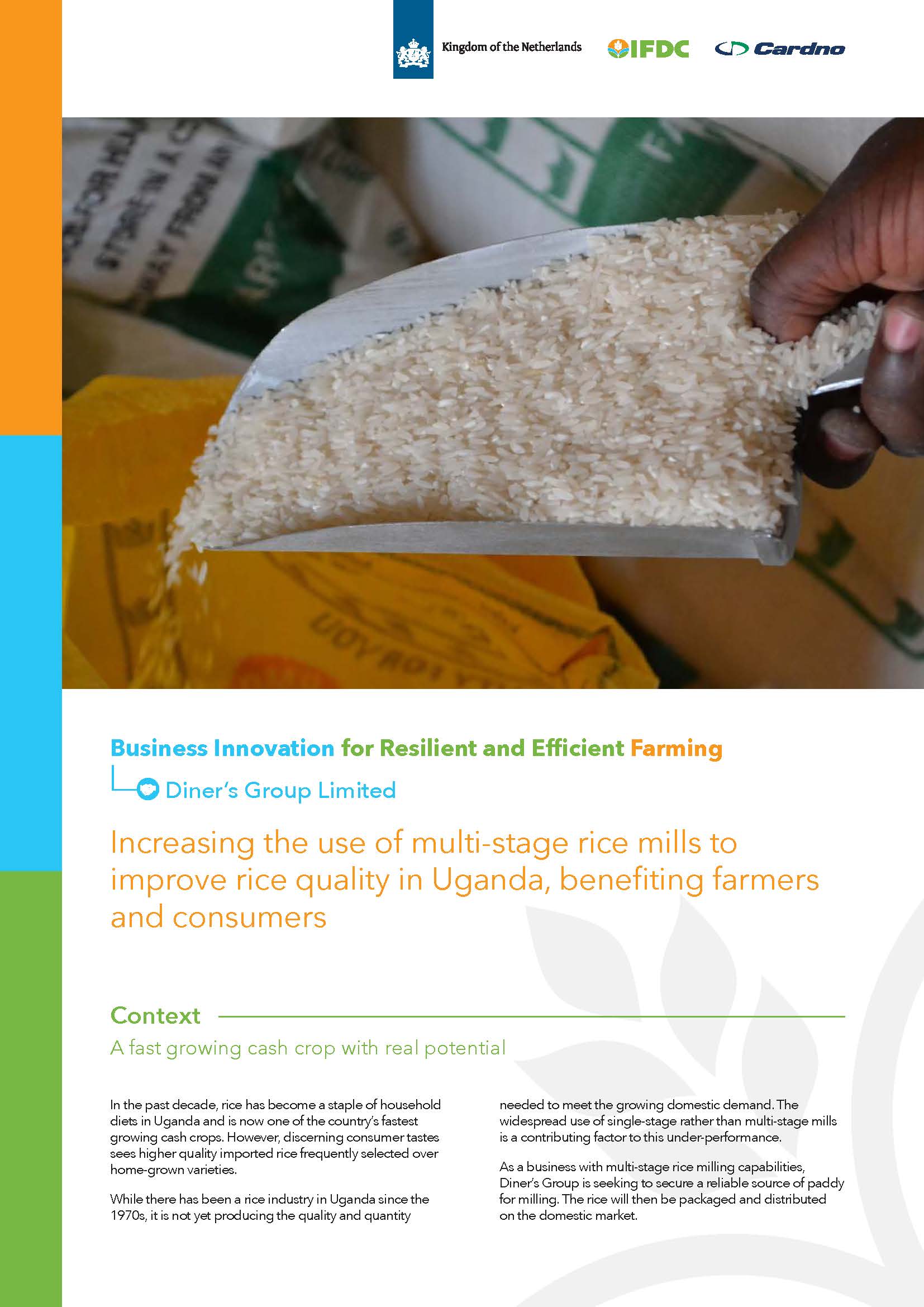 Diner’s Group Ltd.
Diner’s Group Ltd.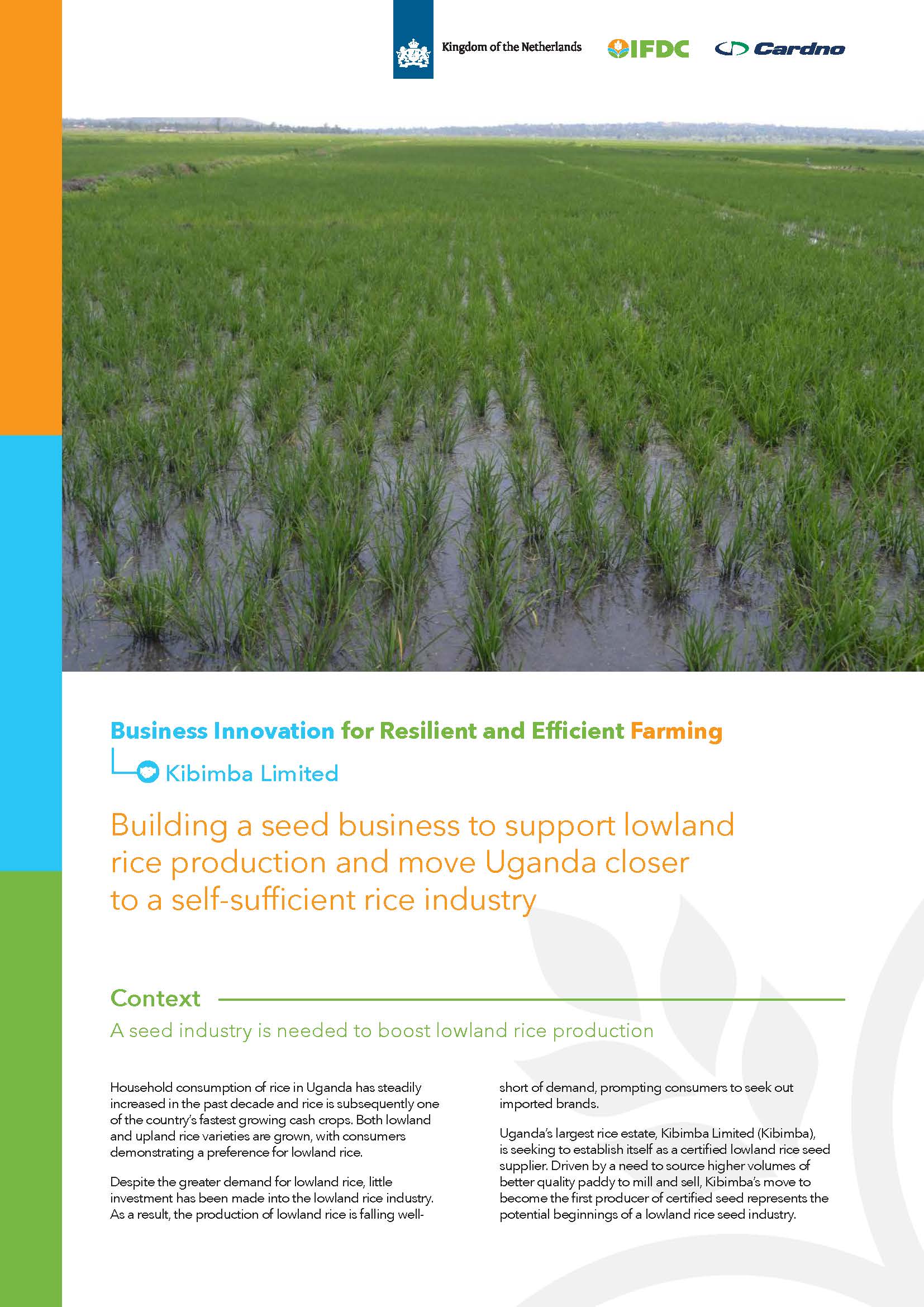 Kibimba Rice Ltd.
Kibimba Rice Ltd. 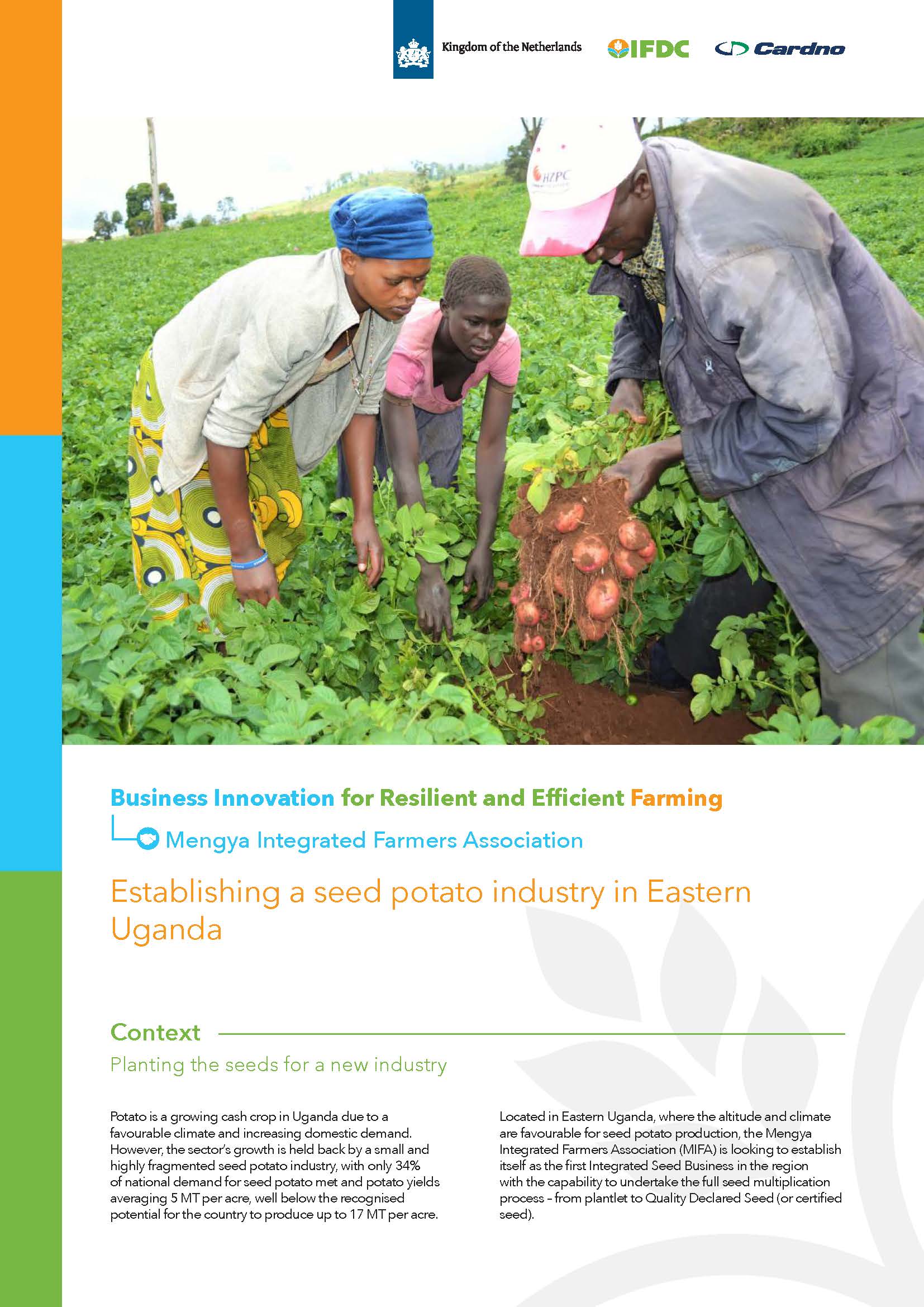 Mengya Integrated Farmers’ Association
Mengya Integrated Farmers’ Association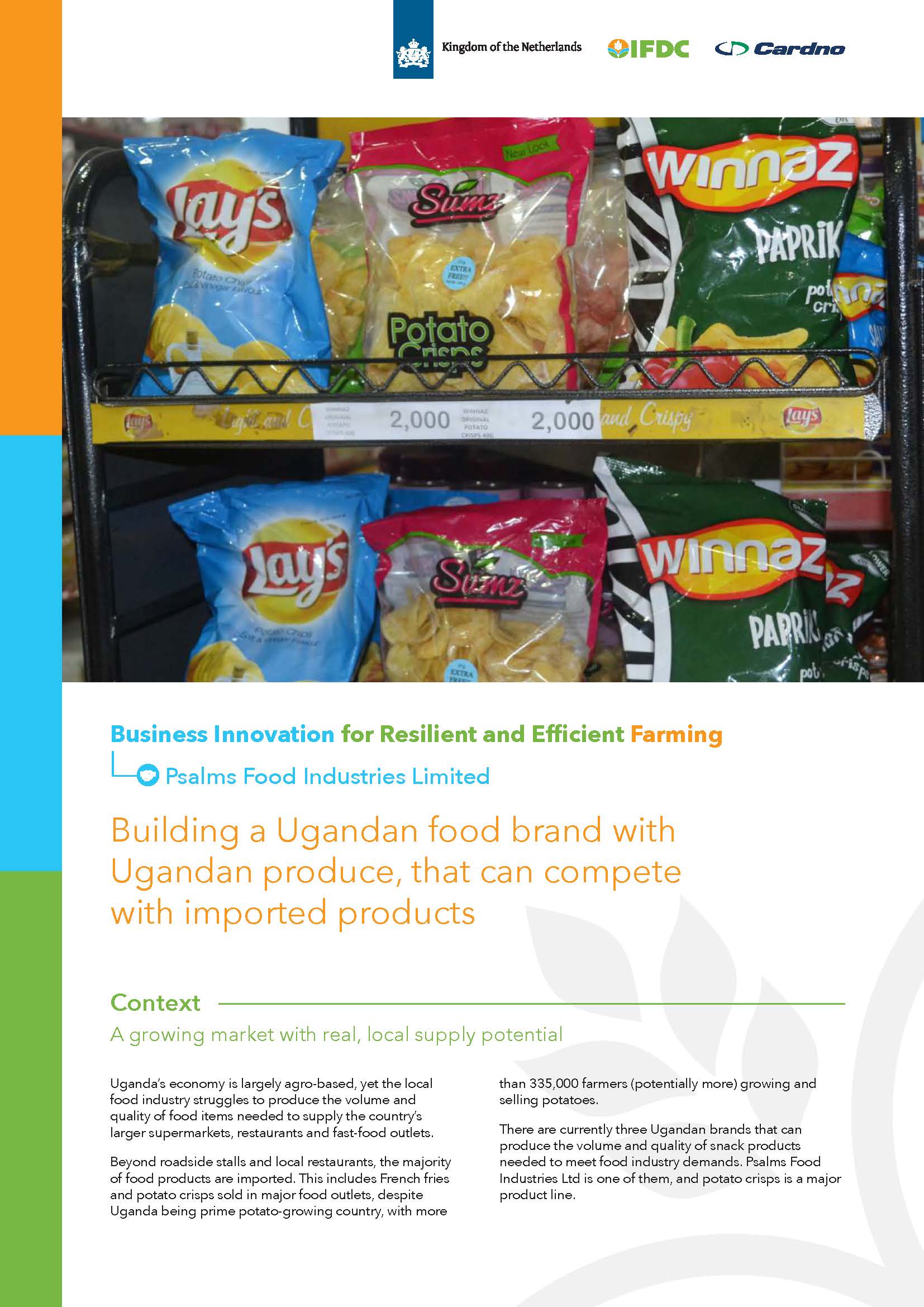 Psalms Food Industries Ltd.
Psalms Food Industries Ltd.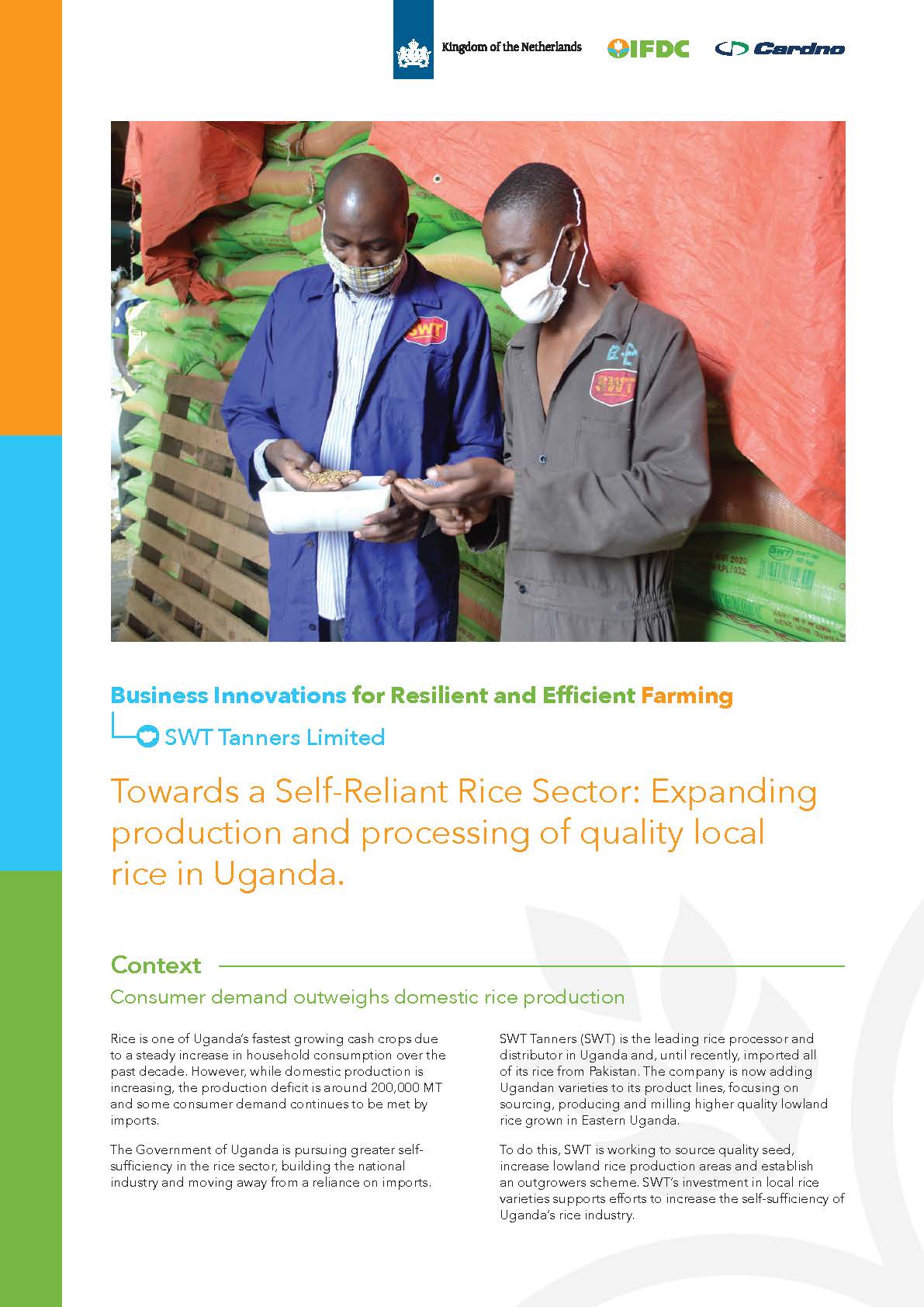 SWT Tanners
SWT Tanners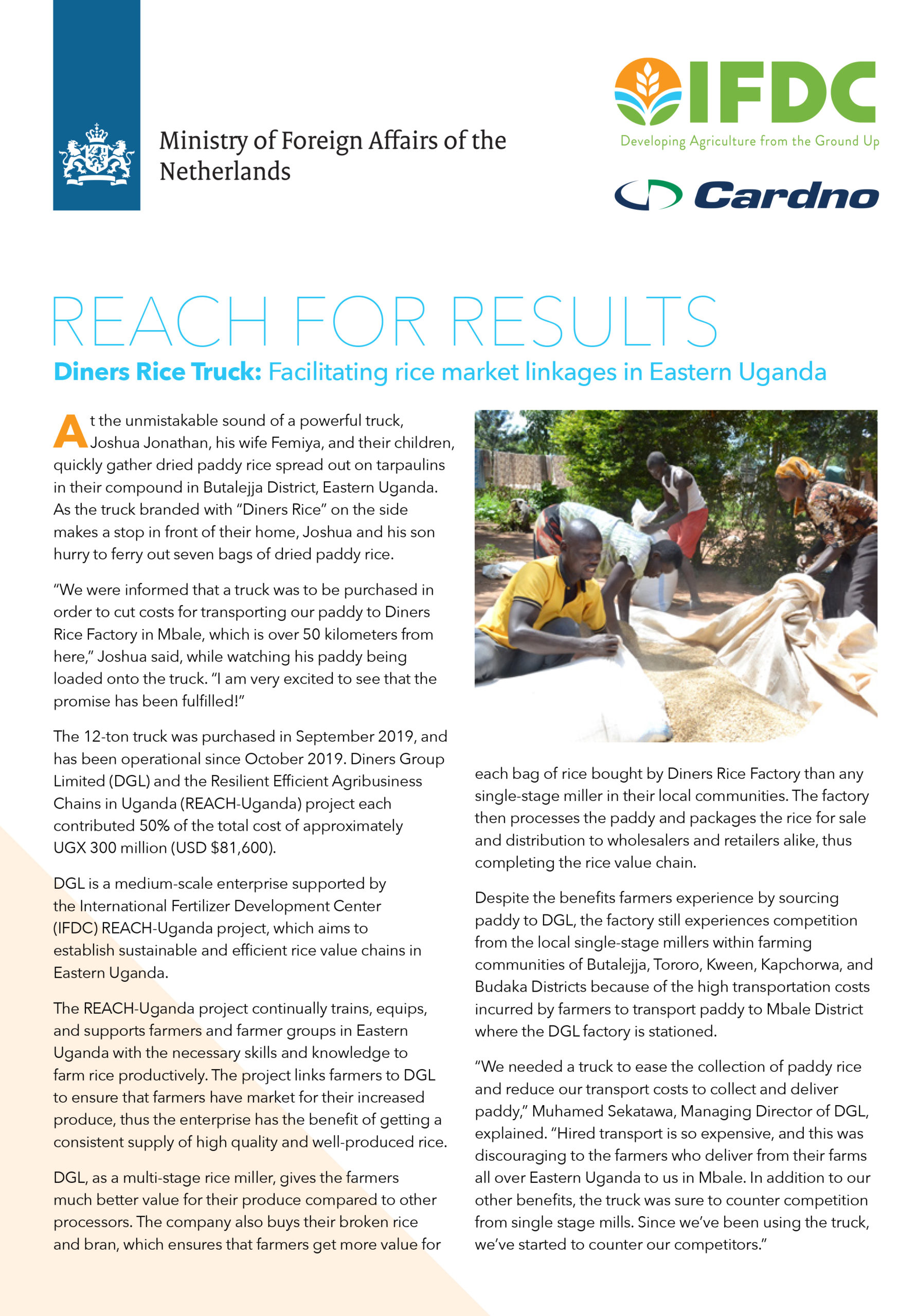 Diners Rice Ltd.
Diners Rice Ltd.
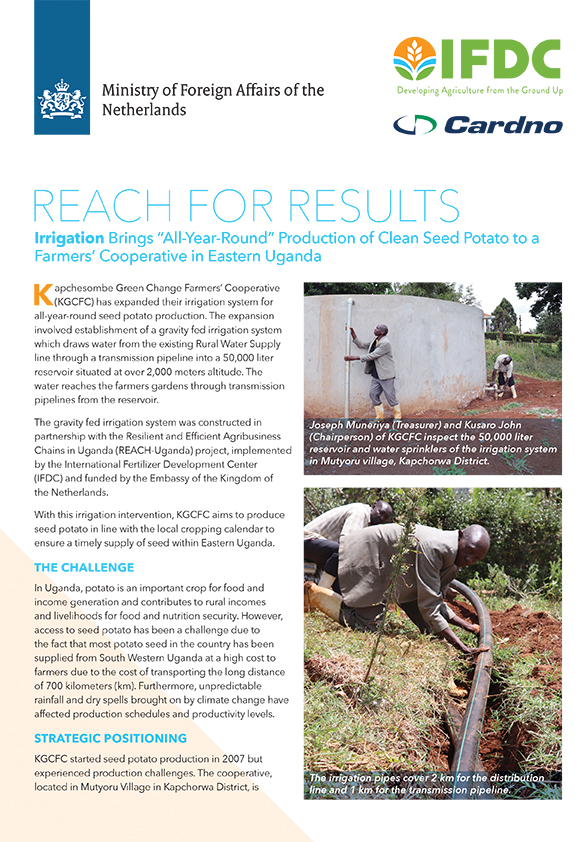 KGCFC
KGCFC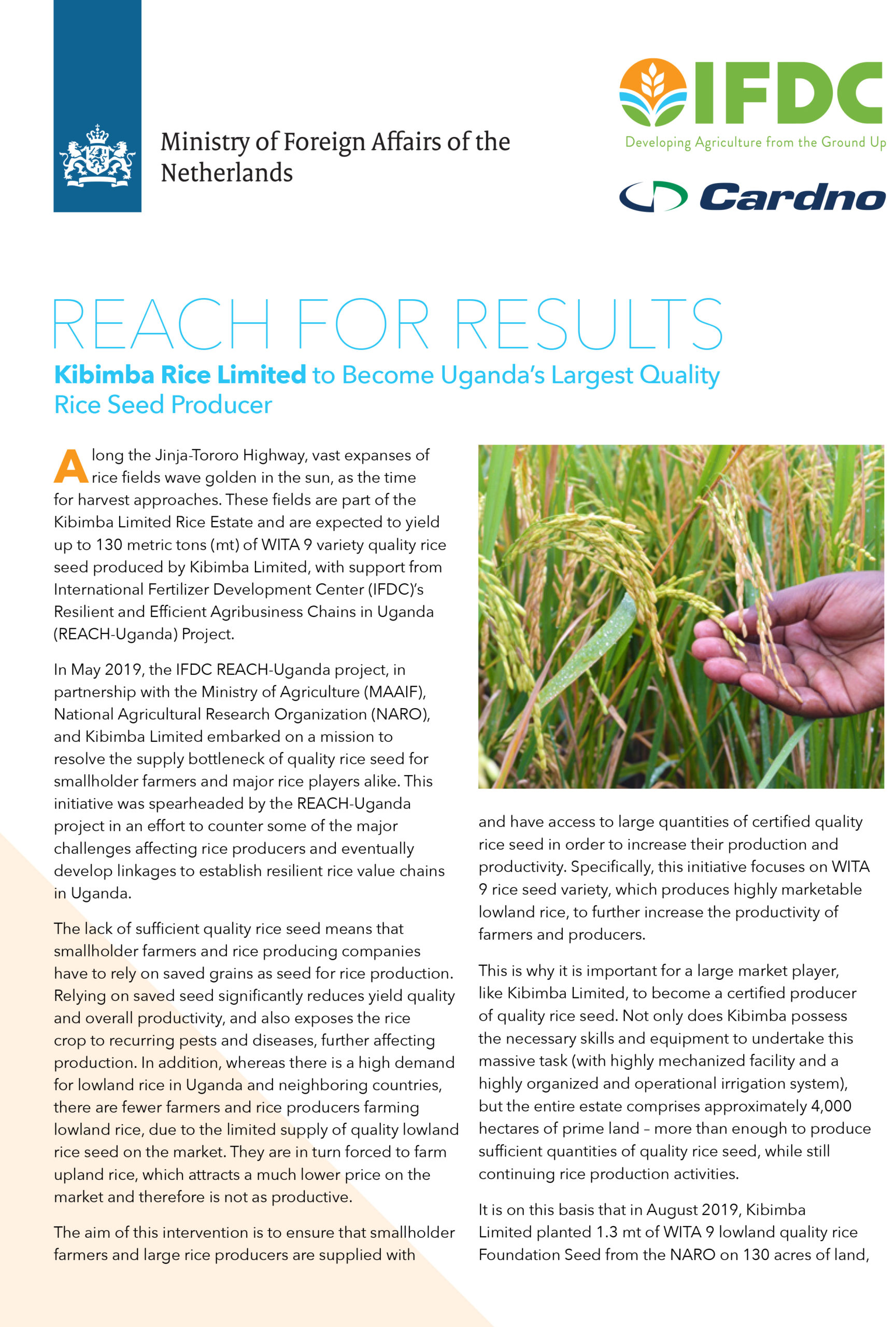 Kibimba Rice Ltd.
Kibimba Rice Ltd.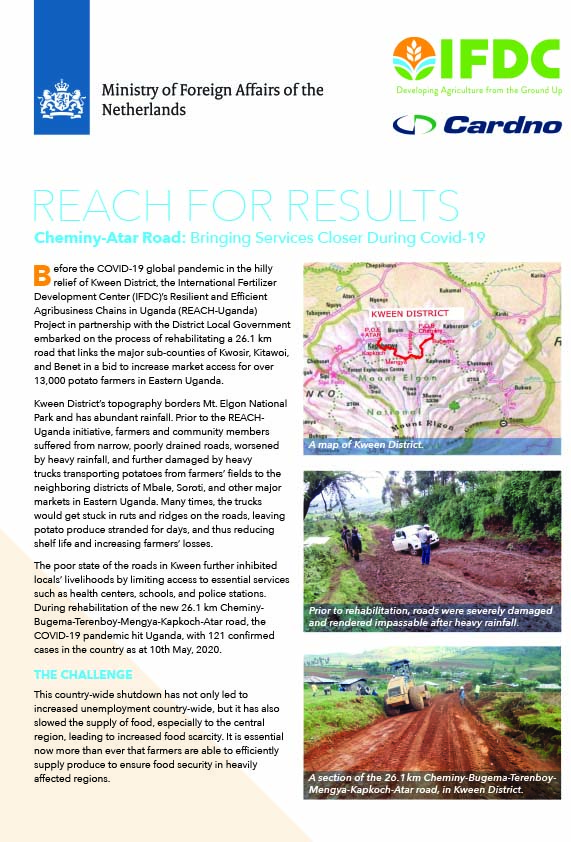 Cheminy-Atar Road Rehabilitation
Cheminy-Atar Road Rehabilitation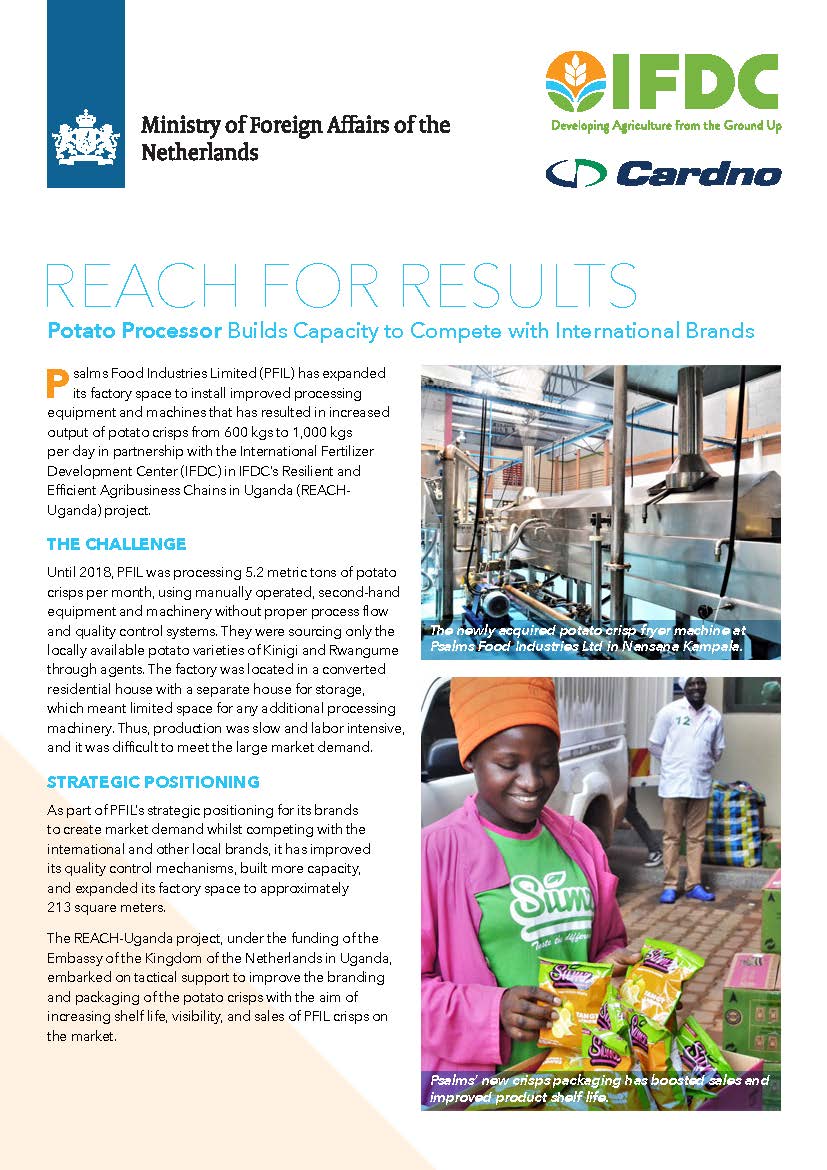 Psalms Food Industries Ltd.
Psalms Food Industries Ltd.